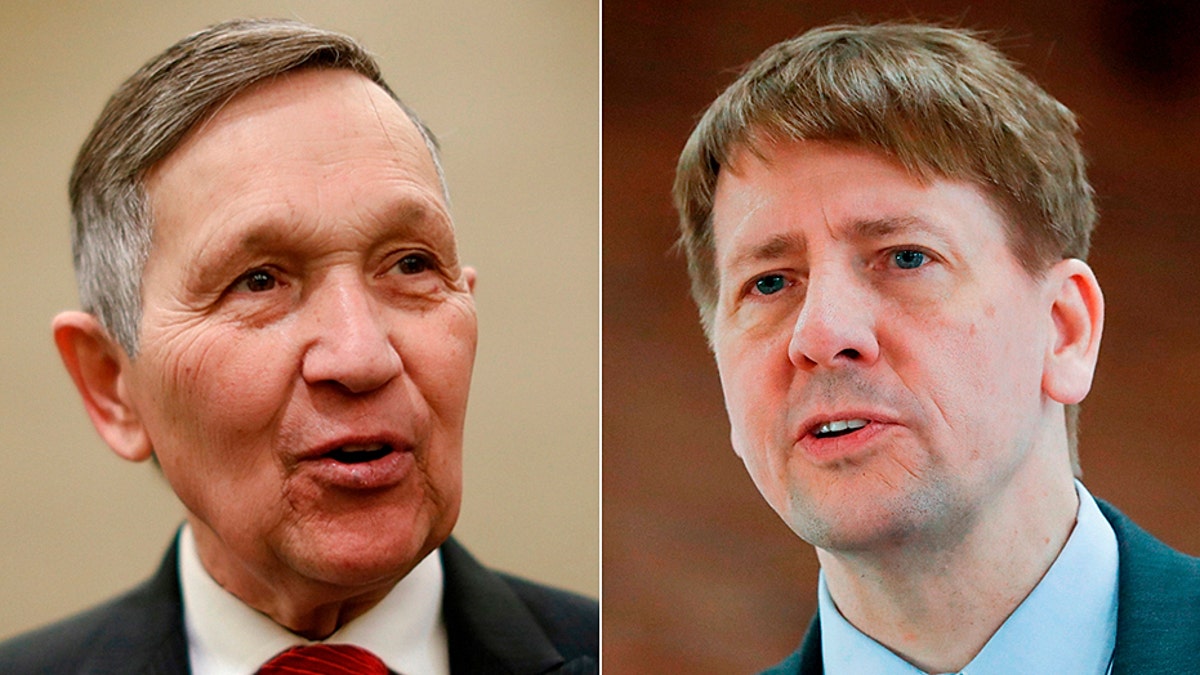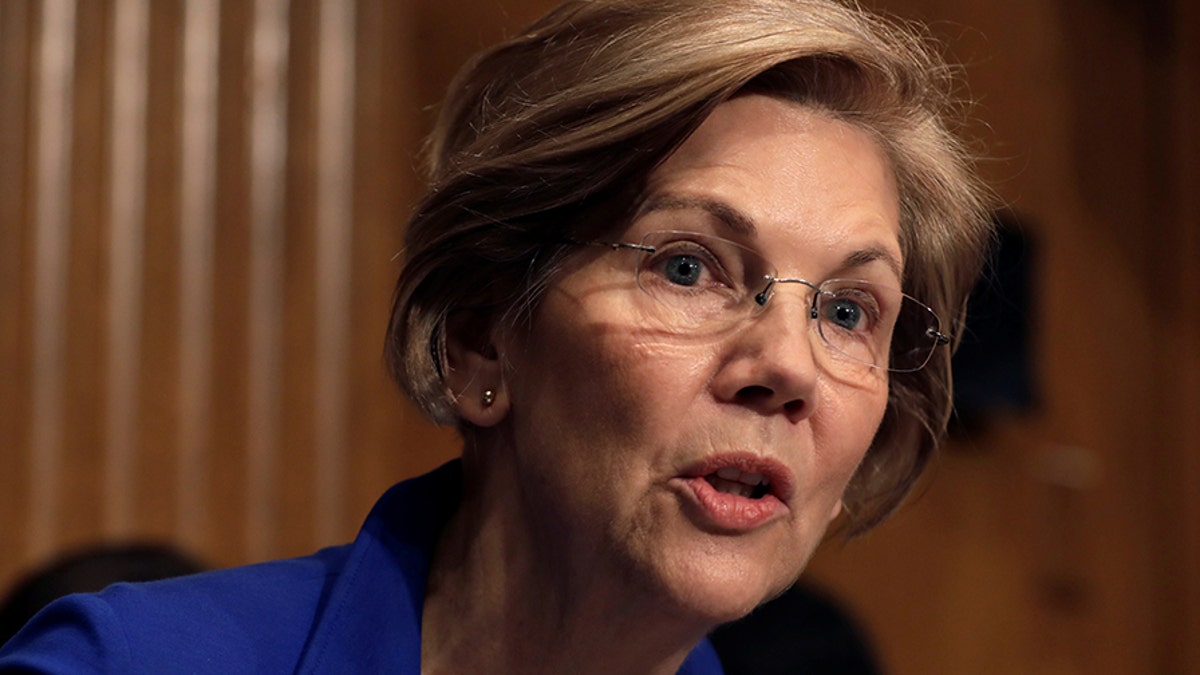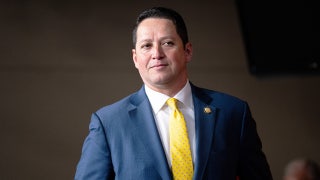Blankenship dismisses prison sentence as 'fake prosecution'
Republican Senate hopeful and former Massey Energy CEO says the government blamed coal miners for not doing their jobs.
Candidates in West Virginia, Ohio, Indiana and North Carolina made closing arguments this weekend ahead of key primaries Tuesday -- showing in many ways how Republican hopefuls are aligning behind President Trump while Democrats move to the left in more divided paths that threaten to undermine the party.
Ahead of West Virginia’s GOP primary Tuesday to unseat Democratic Sen. Joe Manchin, each of the top three candidates has claimed to be the closest in ideology to Trump. Meanwhile, Don Blankenship has taken direct aim at Senate Majority Leader Mitch McConnell -- calling him “Cocaine Mitch.” Blankenship apparently has tried to link McConnell to a 2014 news report about drugs purportedly found on a ship owned by his in-laws.
Blankenship also has accused McConnell of creating jobs for "Chinapeople" and said his "China family" has given him millions of dollars. McConnell's wife is Trump's transportation secretary, Elaine Chao, who was born in Taiwan. Her father, entrepreneur and philanthropist James S.C. Chao, was born in China.
The leading GOP candidates are state Attorney General Patrick Morrisey and Rep. Evan Jenkins. They have until recently largely ignored Blankenship -- a former coal industry executive who served a year in prison in connection with the Upper Big Branch Mine explosion in West Virginia in 2010 that killed 29 workers.

Dennis Kucinich, left, and Richard Cordray are top candidates in the Ohio Democratic primary for governor.
But this weekend, Morrisey started using “robo-calls” to potential voters saying: “Convicted criminal Don Blankenship didn’t vote for President Trump and is a resident of Nevada, where he must report to his parole officer.”
On Sunday, Morrisey moved to have Blankenship disqualified from the primary for failing to submit a financial disclosure, in violation of election law and perhaps of his probation.
Blankenship’s campaign said the candidate has already spoken to his probation officer, who wasn’t concerned about the financial disclosure.
Washington Republicans have said they thought the Manchin seat was very winnable, based in part on Trump having won the state in 2016 over Democrat Hillary Clinton by 42 percentage points.
The GOP candidates in Ohio have been pushing for change. “I’m tired of the career politicians we have in Washington. That’s why I’m running,” Mike Gibbons, a Republican businessman and first-time candidate trying to unseat Ohio Democratic Sen. Sherrod Brown, told Fox News’ “America’s News HQ” on Saturday.
Such talk likely sounds familiar, considering Trump, a Republican, won the 2016 White House race as a successful businessman and first-time candidate vowing to “drain the swamp” of career politicians in Washington.
Trump has, however, endorsed Ohio Rep. Jim Renacci. And the president on Saturday included the four-term congressman in a public event in Cleveland.
"He’ll be fantastic,” Trump said of Renacci. "We need his vote very badly."

Massachusetts Democratic Sen. Elizabeth Warren, a champion of her party's "progressive" wing, is backing Richard Cordray for Ohio governor.
Gibbons, a fundraising co-chairman in Ohio for the 2016 Trump presidential campaign, also told Fox News that the largest personal donation he ever gave to a candidate went to Trump.
Trump won each of the four states holding primaries Tuesday.
In Indiana, Republicans are set to pick from three candidates who have spent much of the race praising Trump and bashing each other, in a bid to unseat Democratic Sen. Joe Donnelly.
In attempts to appeal to Trump voters, they’ve adopted the president's harsh immigration rhetoric and penchant for personal insults. The candidates have even channeled Trump by assigning derisive nicknames to one another: “Lyin’ ”Todd Rokita, Luke “Missing” Messer and “Tax Hike” Mike Braun.
Ohio also has a Democratic and Republican primary to replace term-limited GOP Gov. John Kasich.
In the GOP primary, state Attorney General Mike DeWine has a double-digit lead over Lt. Gov. Mary Taylor. Both are Trump-agenda supporters.
The top Democrats in the Ohio governor’s race are former Rep. Dennis Kucinich and Richard Cordray, a former state attorney general and onetime Consumer Financial Protection Bureau director.
Kucinich is backed by Our Revolution, the self-described “next step in the Bernie Sanders' movement.” Cordray is being endorsed by Massachusetts Democratic Sen. Elizabeth Warren, who helped start the federal protection bureau.
Warren is a potential 2020 presidential candidate whose efforts to regulate Wall Street have made her a champion of the party’s “progressive” wing.
Sanders, an Independent Vermont senator, ran for president in 2016 as a Democrat. The self-described Democratic socialist is weighing a potential 2020 bid and would very likely compete with Warren for the Democratic Party’s most liberal wing.
Cordray on Saturday downplayed the Warren-Sanders narrative and suggested he was more concerned about connecting with voters, citing his “kitchen table” platform aiming to address concerns such as jobs and health care.
“I don’t think it represents any big split,” he told Fox News. “We’re presenting a case to voters in Ohio.”
Polls have shown the race essentially tied or Cordray having a slight lead. Race handicappers, including the nonpartisan Cook Political Report, have rated the general election contest “lean Republican,” which means the GOP has a slight edge.
Trump won Ohio in 2016 by 8 percentage points, and the state has had a Republican governor for roughly 23 of the past 27 years.
"The far left and the far right always think they are going to dominate these elections," said John Weaver, a Trump critic and top strategist to Kasich. "You may think it's wise in a primary to handuff yourself to the president. But when the ship goes down, you may not be able to get the cuffs off."
Still, primary candidates historically must appeal strongly to their bases to win, before they often try presenting more moderate platforms to win over general election voters.
In North Carolina, GOP Rep. Robert Pittenger faces a primary challenger who almost upset him two years ago. Pittenger features Trump prominently in his campaign. Challenger Mark Harris, a prominent Charlotte pastor, has tried to turn the table, saying Pittenger is a creature of Washington who refuses to help Trump "drain that swamp."
The leading Democrat for the seat is Marine veteran Dan McCready, who has raised almost $2 million, slightly more than Harris and Pittenger combined, in a district Trump won by about 12 percentage points.
Democrats must flip about two dozen Republican-held seats to reclaim a House majority, and they must do it with Republican-run legislatures having drawn many districts to the GOP's advantage.
Fox News’ Peter Doocy and The Associated Press contributed to this report.













































